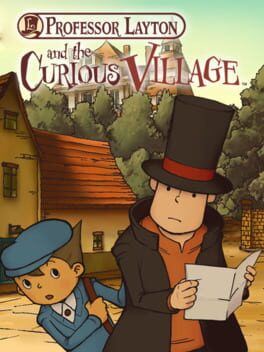I've heard the criticism that a game in which its mechanical identity is a mar or appendage to the body articulate of the play space is at best laterally integrated and at worst counter drifting levied against The Witness, and while for that game with its puzzles abstracted in the linearity contra expeditionary seamways (which works for me thematically but I get the clash) was a fruitful pasture for the idea of game this/aesthetics that, I think that the Professor Layton series holds a greater degree of oil and water than most puzzle games. The segmentation of play, and the arbitrary construction of the puzzle atmosphere (literally, the forces which probate and negate the solving) seems to me to hinder the narrative architecture in a way that something with the murky mood and abstraction of The Witness, which does have thematic narrative, or even Baba is You, which has allusive thematic impetus, with its deconstruction of the logical indices on which puzzle development from the player side of rupture from coherent wholeness, doesn't present tidily with Layton. I get it's kind of a kids game, and it is much more light hearted than a lot of large puzzle titles - still, puzzles are shortcuts to climaxes, and Layton's devs just don't understand what a 1000 little denouements with no subservience to their place does to the game world's completeness.
2 Comments
ive also heard that

bunbun
1 year ago